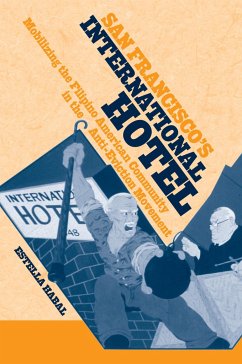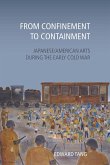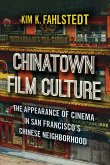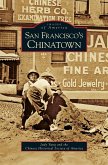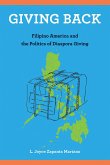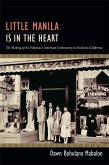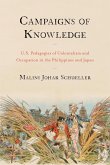"While other studies have treated the International Hotel struggle in terms of the politics of urban renewal, this book makes clear the distinctly Filipino elements of the story, effectively describing the worlds of the elderly Filipino 'manong' tenants and the youthful student and immigrant radicals who rallied to their side. In these respects, the book breaks new ground." Barbara M. Posadas, Professor of History, Northern Illinois University "San Francisco's International Hotel is both testament and tribute to a determined group of Filipino American men and women who took on corporate and government bigwigs and, against all odds, eventually won. What emerges is a story of universal struggle - across arbitrary ethnic, gender and class lines - the ultimate right for every human being to have fair access to decent, affordable housing, to establish a home for once and for all." The San Francisco Chronicle "A testament and tribute to a determined group of Filipino American men and women who took on corporate and government bigwigs and, against all odds, eventually won." The San Francisco Chronicle "This book is a compelling account of community resistance that has become a milestone event in the history of Filipinos in America." Filipinas Magazine "San Francisco's International Hotel...documents a significant piece of Filipino American history and sets it against the backdrop of urban housing politics, coalitional activism, and the struggles of a cohort of elderly tenants, student radicals, and civic allies... Because Habal writes as if there is no distinction between the personal and the political, she catches the widest possible audience. Readers have the benefit of a personalized eyewitness account as Habal explores a number of difficult political struggles... [T]he most decisive struggle--the one that propels this book in the most significant ways--was fought over what to do with the weak and powerless in the face of corporate pressure." Asian Affairs, Spring 2009 "This history of the violent 1977 eviction...brings together urban and Asian American history in its narrative of a poignant struggle for social justice."-Southern California Quarterly, Winter 2008/2009 "Habal's work is participant history at its best. Only someone writing from an insider's vantage point could so vividly capture the psychological and political impact on all sides when young Filipinos encountered and then struggled together with Filipino elders...Only someone immersed in the culture of the hotel tenants and their supporters could take us inside the complex gender, race, and generational dynamics of this fight...Habal explores debates and conflicts among the tenants and within the Left with a tremendously deft balance of solidarity, frank evaluation and self-criticism. The quality of this book whets the reader's appetite for more... There is much to be learned from this book for present and future battles." make/shift "Estella Habal's highly personal and moving account of this flashpoint of Asian American movement of the 1960s and 1970s is more than simply a story about the besieged Filipino and Chinese residents of a San Francisco hotel and their fight against eviction. This book is a social and political history of a community, a neighborhood, and a city in transition. Habal writes with the passion of an activist through the lens of a historian. She provides an intimate yet critical insider's view of the struggle for the "I-Hotel." Given the dearth of scholarship on the Asian American movements of the 1970s and post-1965 Filipino American history in general, Habal's book is a major contribution." The Journal of American Ethnic History, Winter 2009 issue "[Habal's] analysis of the shifting alliances among local politicians, tenant rights groups, and the I-Hotel leadership is particularly insightful as is her analysis of [the Union of Democratic Filipinos]... Habal has provided an invaluable study of an important movement struggle." - Journal of American History, March 2009 "Habal appears to have been uniquely positioned to not only document the unfolding campaign, but to keep track of the conflicts, negotiations, and happenstances that defined the collective identities and claims of the many participants...With her personal archive of photographs, documents, and notes, supplemented by years of post-eviction involvement in the community and later interviews with key participants, Habal provides far more than a history of events. She has written a history of collective identity mobilization, virtual power, and popular politics. Her own interests and recollections add depth to the study without devolving into a plea for the cause or an ego project. Her personal voice is refreshing and honest... San Francisco's International Hotel is a valuable source. " Mobilization

